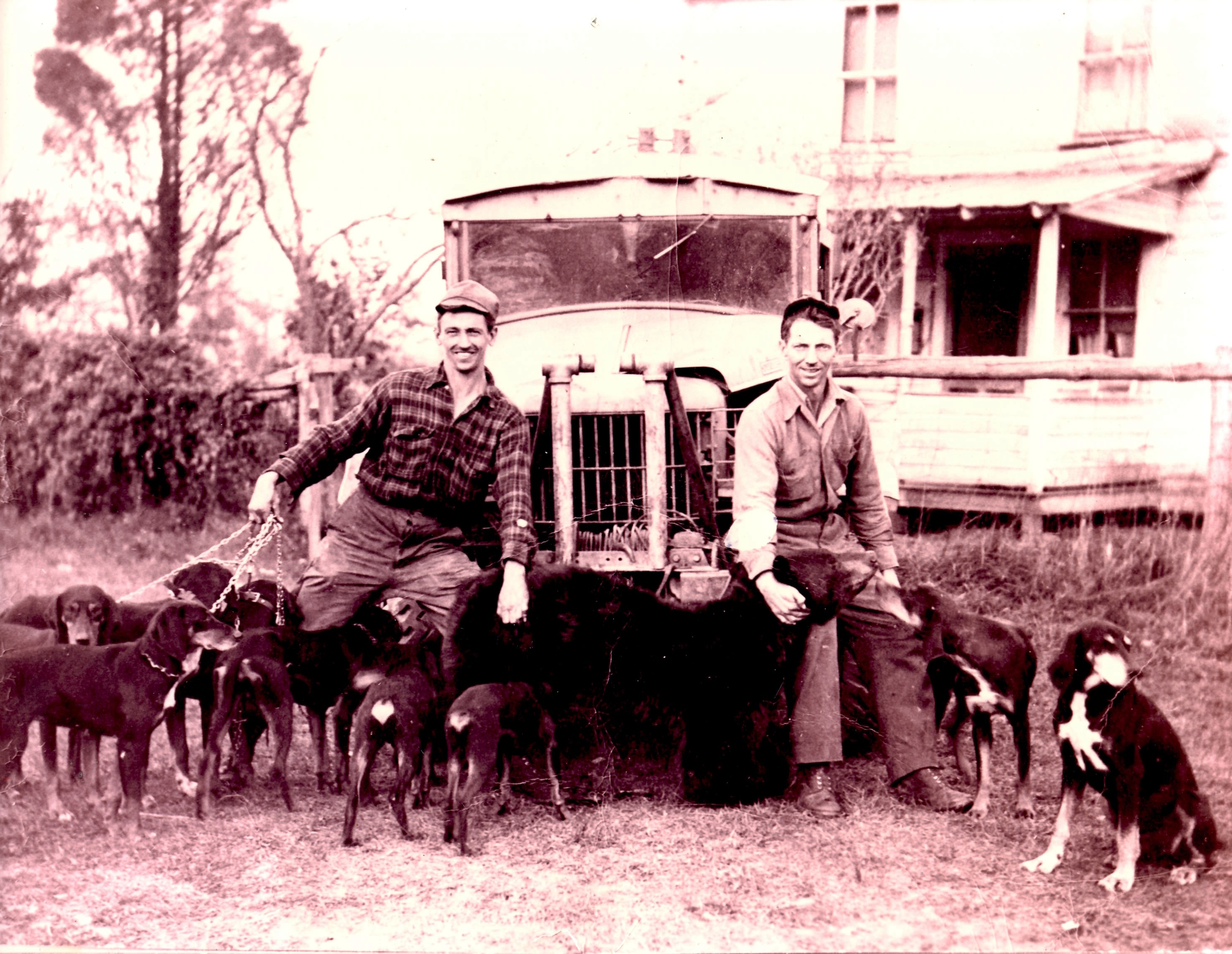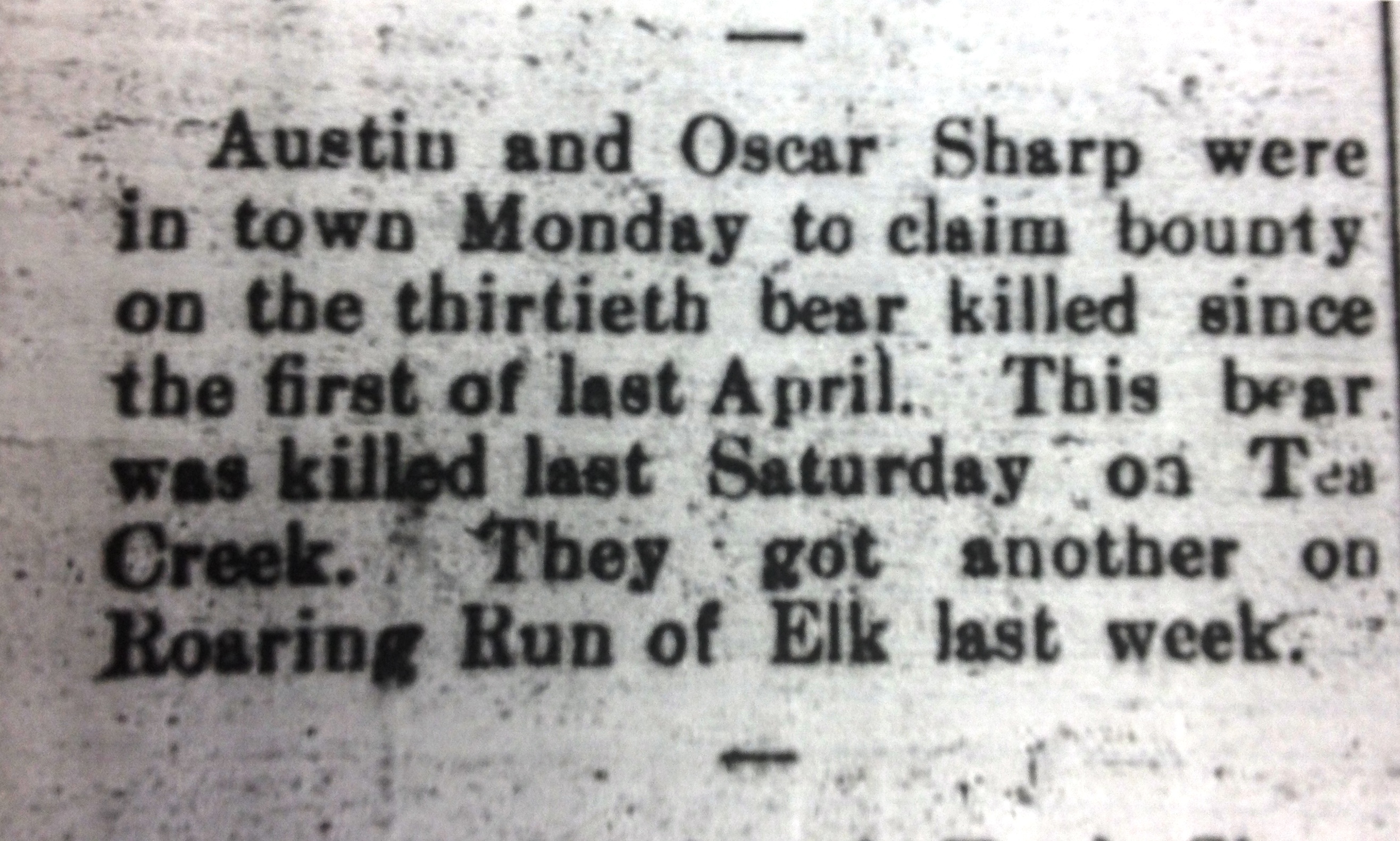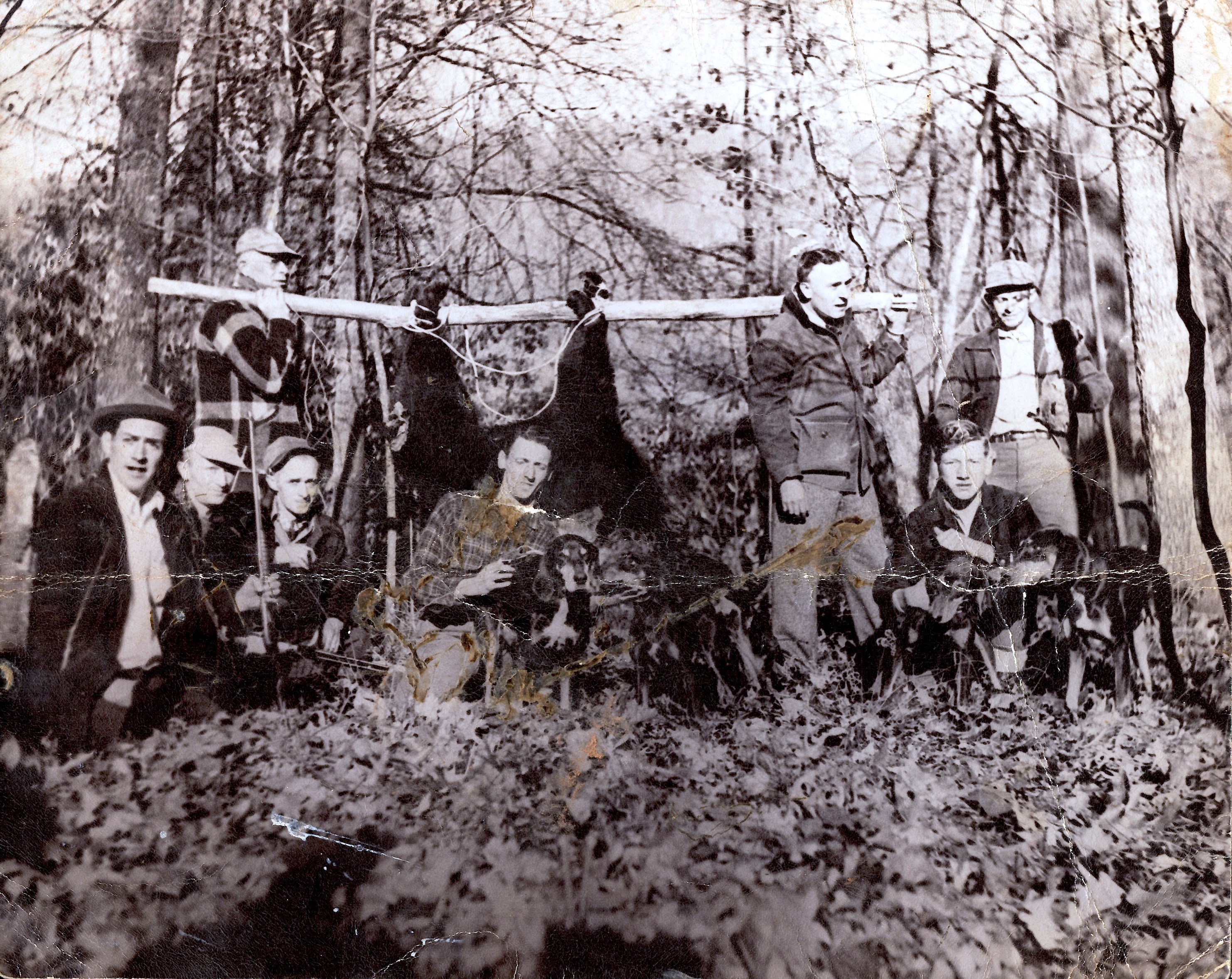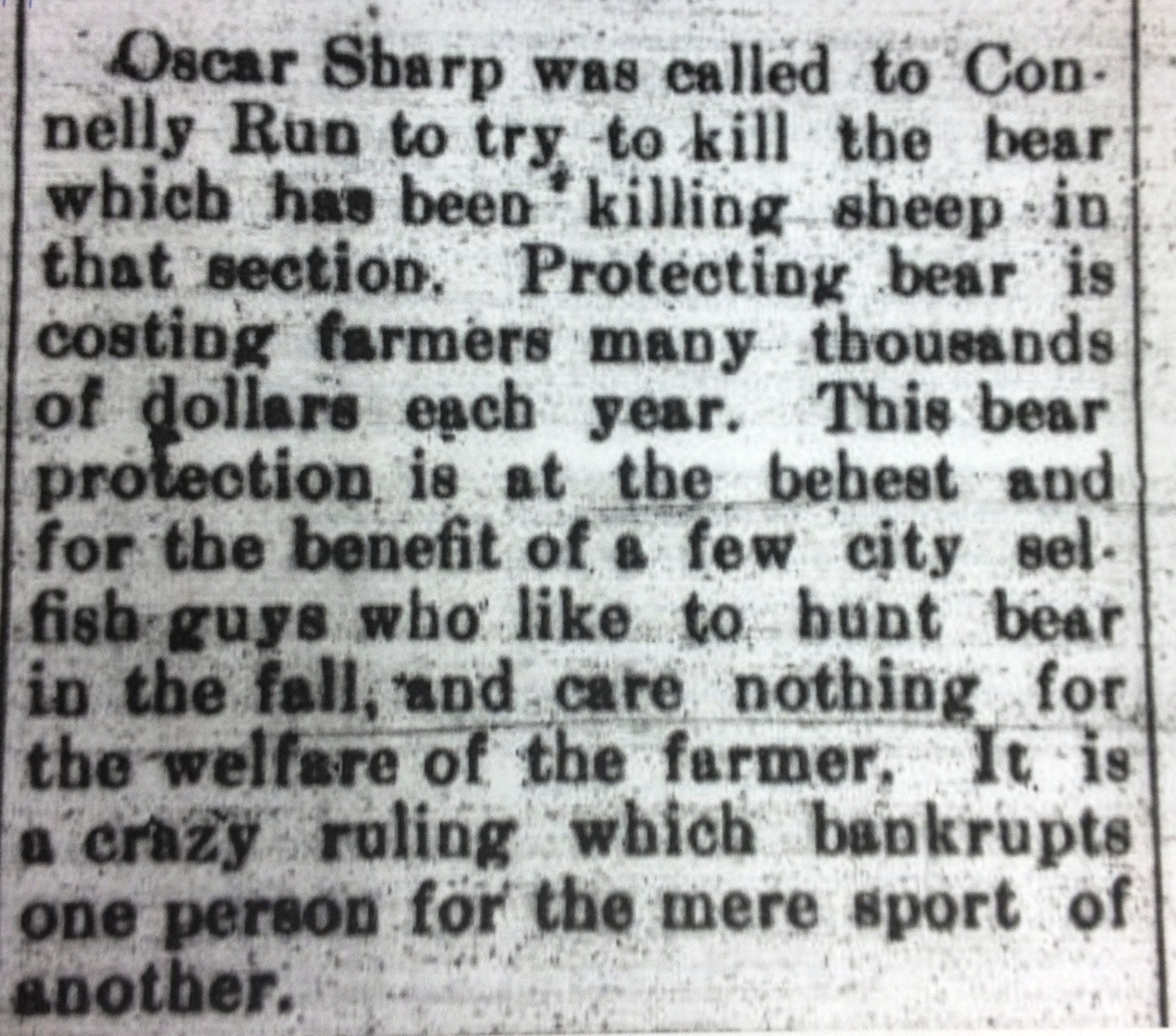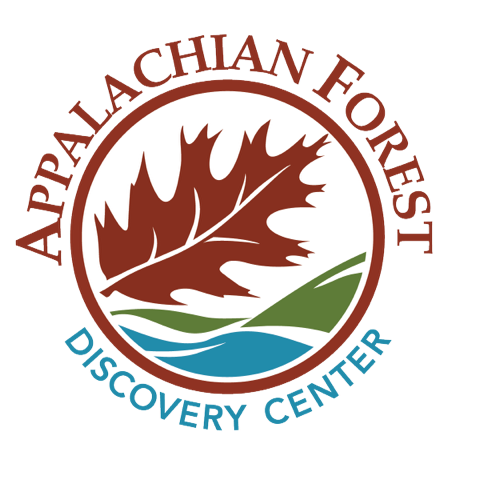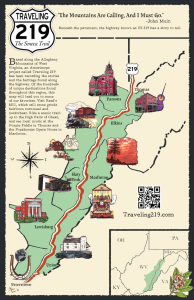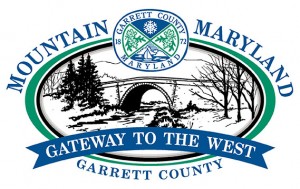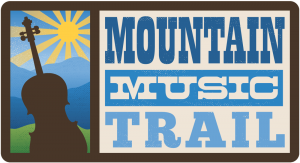Bear Tales: The Sharp Twins
This is part one of a two part story, to check out part two, click here! Bear hunting is a long running tradition in the mountains along US 219. It started more than 200 years ago, when farmers began to run sheep on their hill farms and the native black bear discovered a new food source. In the old days the mountains rang with the baying of dogs on a beartrack, but the hunt was different then. Only a handful of hunters were willing to brave the laurel thickets, but those that did have become the stuff of legends. In this third installment of Bear Tales [click here to see the other stories in the series], the history of Austin and Oscar Sharp, two of Pocahontas County’s most famous bear hunters, will be brought to life by those that knew them best. In the first part of this two part story Christine Wilfong, Paul Sharp, Tommy Sharp, Vivian Biggs, and Randy Sharp share memories of their fathers and uncles. Listen to the story above.
“Often considered the forefathers of bear hunting in Pocahontas County the Sharp brothers, Austin and Oscar gained attention after their hunting escapades were chronicled by Pocahontas Times editor Calvin Price in the 1940s. Known throughout West Virginia and Virginia for their ability to rid farmers of even the craftiest sheep killing bear the Sharp twins possessed an innate connection to the woods, their dogs, their prey, and to each other. Their legacy was cut short when Oscar lost his life in a coal mining accident and the meaning of the hunt changed for Austin, but their passion for the chase and the region they called home lives on in the memories of their children, nieces, and nephews.” Tommy: “Whenever you got big enough to carry a Rifle you were in the wood a’huntin. If it was edible or you could sell the hides, they was into it. Randy: “The first time they ever killed a bear, they as going, what dad told me, they as going Christmas tree hunting back on Black Mountain Run. They took some dogs with them and got after a bear and run him up over in Cranberry.
Vivian: “Dad was in service from, what – 42’ to 45’ and I’m sure during that time Oscar was the main one who as doing the hunting. It appears like when he came back though that they started right back into it, because there was an article in 1946 in the Pocahontas Times where they were in town to claim the bounty on the 30th bear of that year. Tommy: “Back in that time there was no season on bear hunting. Somebody had a big flock of sheep and most everybody in the county did. If they had some sheep killed they would call them and they’d gather up eight or ten people to ride with them and chase the bear and usually catch him.
Christine: “Yeah, well dad had certain people he would call and say, you know, the bear is in so and so’s sheep could you come and go with me. He did a lot of hunting for the Vandevender boys over in Elk, Cal Hannah had a farm over there too and it seems like the sheep were constantly being killed by bear over in that region. They also hunted in Bath County, in Stanton Virginia. They had a bear over there that whipped most of the dogs; they even set a trap for him. Dad and Austin went over there and they had him in half an hour. And they just knew where that bear was gonna run off. Now Austin would pretty well set the standers, the men around. They just had that in their minds wherever they thought that old bear was gonna run to. Now I’d say three fourths of their bear kills were bears that had killed sheep.”
Vivian: “There was one article that I read where they estimated this one farmer’s loss in two nights at about two hundred and fifty dollars. There was a lot of, I guess controversy. The people from the cities didn’t understand about killing bear. There were lots of articles in the paper and lots of letters to the editor. They thought it was archaic I guess you’d say.” Tommy: “The loss of animals, that was your livelihood and if you lose very many of them you’re out of business. If you had a bear coming in and killing you’re sheep you’d call Oscar and Austin and they’d go and most of the time they’d get the right one. There was a lot of money lost by the farmers and they depended on somebody else to help them. Randy: “Dad said he’s had farmers come to the house almost crying. He said they was working, they worked in the coal mines and he said a lot of time it was hard on them to go, but they sort of felt obligated to go. He said some of them guys just they had no other choice, they didn’t know what they was gonna do.” For more on the Traveling 219 series Bear Tales, click here!
Category: Bear Tales, Elkins to Marlinton, Family & Community, Stories

